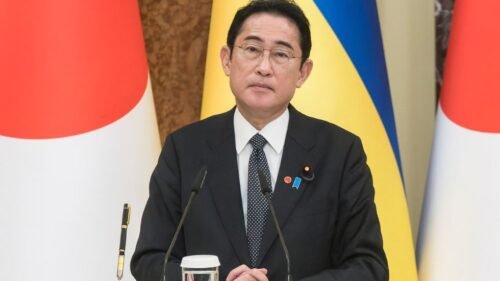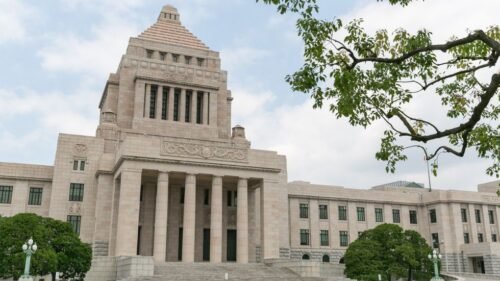[This video was recorded before Sanae Takaichi was chosen as the president of the Liberal Democratic Party on October 4, 2025. It has been updated to include this information.]
Rohan Khattar Singh, Fair Observer’s Video Producer & Social Media Manager, speaks with Saya Kiba, an associate professor at Japan’s Kobe City University of Foreign Studies, regarding the resignation of former Prime Minister Shigeru Ishiba. They explore why Ishiba stepped down, the Liberal Democratic Party’s (LDP) leadership race, the top contenders and the challenges awaiting Japan’s next leader, from economic strain to a rising wave of right-wing populism.
Why did Ishiba resign?
As Kiba explains, Ishiba resigned on September 7, 2025, after the LDP suffered a string of electoral defeats. Under his leadership, the party lost three major elections: the lower house election shortly after he took office, the Tokyo Metropolitan Assembly election in June and the upper house election in July. These losses shattered the party’s dominance and triggered anxiety among LDP lawmakers who feared for their own seats.
Ishiba’s downfall was less about public opinion than internal revolt. Many within the LDP concluded he could not lead them to victory again. Lawmakers, worried about losing their constituencies, decided they needed a change in leadership before the next general election. His departure thus reflected a survival instinct within the party more than a change in national sentiment.
What’s next for Japan?
Japan will choose its next prime minister through an internal LDP leadership contest. The contest was held on October 4. In this contest, party members and parliamentarians shared the vote equally. The winner must be confirmed by the Diet to become prime minister. As Kiba explains, this parliamentary step is largely ceremonial — a “confirmation” rather than an election.
Once the LDP selects its new leader, the transition of power will be swift, with the new prime minister expected to take office quickly. But beyond the formalities, Khattar Singh and Kiba agree that this vote is highly impactful to Japan’s direction on both domestic and foreign policy, particularly given the split between the party’s liberal and ultra-conservative wings.
Top contenders and a winner
Kiba outlines five candidates for the LDP leadership but emphasizes three frontrunners.
The first is Sanae Takaichi, the only female contender. At 64 years old, she is known for her staunch conservatism and her close alliance with the late Prime Minister Shinzo Abe. Takaichi has opposed same-sex marriage and progressive gender policies, and she has made controversial remarks about historical events. Her campaign slogan, “Japan is Back,” echoes the populist tone of US President Donald Trump’s rhetoric.
The second major contender was Shinjiro Koizumi, aged 44, son of former Prime Minister Junichiro Koizumi. Currently serving as the agriculture minister, he built his platform around addressing inflation and rejuvenating Japan’s economy.
The third was Yoshimasa Hayashi, a 64-year-old diplomat who served as Ishiba’s chief of staff and government spokesperson. Kiba describes him as a pragmatic candidate with strong foreign policy credentials and close ties to former Prime Minister Fumio Kishida.
Ultimately, Takaichi won the LDP’s choice for president. She is currently on track to become Japan’s first female prime minister.
Who is Takaichi?
Takaichi’s rise captures the emotional pulse of Japan’s conservative base. As Kiba notes, many within the LDP miss Abe, whose strong leadership style still resonates. Takaichi represents a return to that era, promising discipline and national pride.
Her conservatism, however, divides the party. Critics within the LDP recall the Abe-era scandals over campaign financing and misuse of funds that eroded public trust. Yet these same controversies have ironically boosted Takaichi’s appeal among ultra-right voters who feel alienated by the more centrist Kishida and Ishiba factions.
This political shift has been reinforced by the rise of Sanseitō, a new far-right party that performed strongly in July’s upper house elections. Many of its supporters were once loyal to the LDP but defected over dissatisfaction with moderate policies. Khattar Singh and Kiba see this as a warning sign that the Japanese right is fracturing, and whoever succeeds Ishiba will need to mend these internal divisions.
Japan’s economy
Japan’s economy remains a central challenge for any incoming prime minister. Ishiba’s administration came under fire for a July 23 trade deal with the United States that many believed leaned in the US’s favor. The agreement left unresolved issues over tariffs on semiconductors and medical supplies, sparking criticism across party lines.
Kiba argues that the next leader must repair Japan’s trade posture and manage relations with the US, particularly as protectionist policies resurface in Washington. Inflation, still a pressing concern, is likely to dominate domestic debate. Khattar Singh adds that Japan’s recovery depends on restoring confidence in both fiscal policy and the leadership steering it.
Japan’s top issues
Beyond the economy, Khattar Singh and Kiba identify three major policy fronts:
- Trade and security: Japan must balance its tariff disputes with maintaining a strong US–Japan security alliance. Washington continues to pressure Tokyo to contribute more to defense costs — a politically sensitive issue amid voter fatigue.
- Inflation and domestic stability: The cost-of-living crisis has eroded public patience, and the new prime minister will need quick wins to restore confidence.
- Diplomacy and regional relations: Japan faces an increasingly tense neighborhood. On September 3, Chinese President Xi Jinping, Russian President Vladimir Putin and North Korean dictator Kim Jong Un met in Beijing, signaling a new phase of coordination among Japan’s nuclear-armed rivals. Managing this trilateral threat while maintaining close cooperation with the US and South Korea will be an early and defining test of Japan’s next leader.
The leadership race is about far more than replacing Ishiba. It is about the soul of Japan’s ruling party — whether it will return to Abe’s hardline nationalism or chart a new, pragmatic path through turbulent economic and geopolitical waters.
[Lee Thompson-Kolar edited this piece.]
The views expressed in this article/video are the author’s own and do not necessarily reflect Fair Observer’s editorial policy.











































Comment